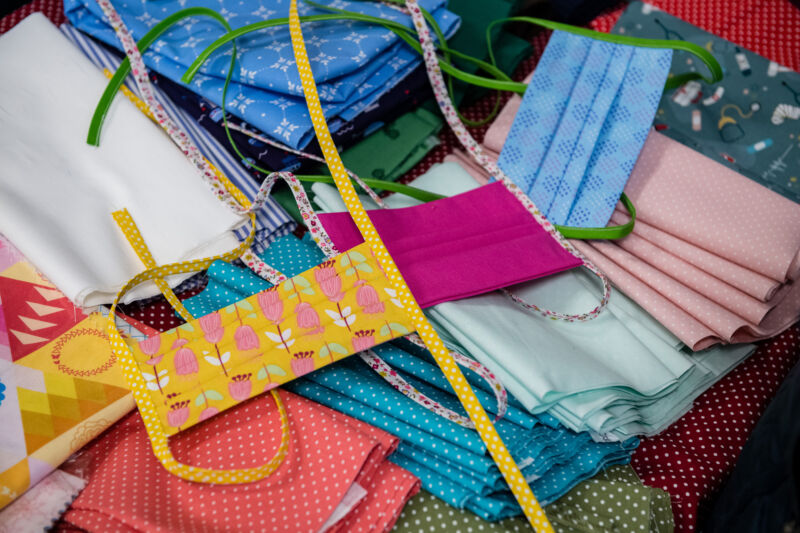CDC study backs mask doubling with exposure to risky particles down 83%

Enlarge / Self-sewn protective face masks in a fabric store on April 3, 2020, in Jena, Germany. (credit: Getty | Jens Schlueter)
With the pandemic still raging and several dangerous variants looming, many experts have suggested doubling up on masks. Now, a new study by the Centers for Disease Control and Prevention doubles down on that strategy.
Adding a cloth mask over a surgical mask on a rubbery dummy head more than doubled particle blocking when the dummy simulated coughing-aka spewing particles capable of carrying coronavirus-the study found. Specifically, a surgical mask or a cloth mask alone blocked about 42 to 44 percent of particles, respectively, coming out of the coughing dummy. The combo of a cloth mask over a surgical mask blocked 92.5 percent of the risky particles.
Next, the CDC researchers gave the rubbery dummy head an equally disembodied friend, spaced about 2 meters (6 feet) away in a cozy, unventilated experimental chamber. When one of the heads quietly belched aerosol particles (source) while maskless, the researchers measured the dose of particles that the companion (receiver) took in during a 15-minute period. Wearing a surgical mask alone cut the receiver's exposure to particles by just 7.5 percent, compared to wearing no mask. Wearing a double mask cut the exposure by 83 percent.
Read 7 remaining paragraphs | Comments